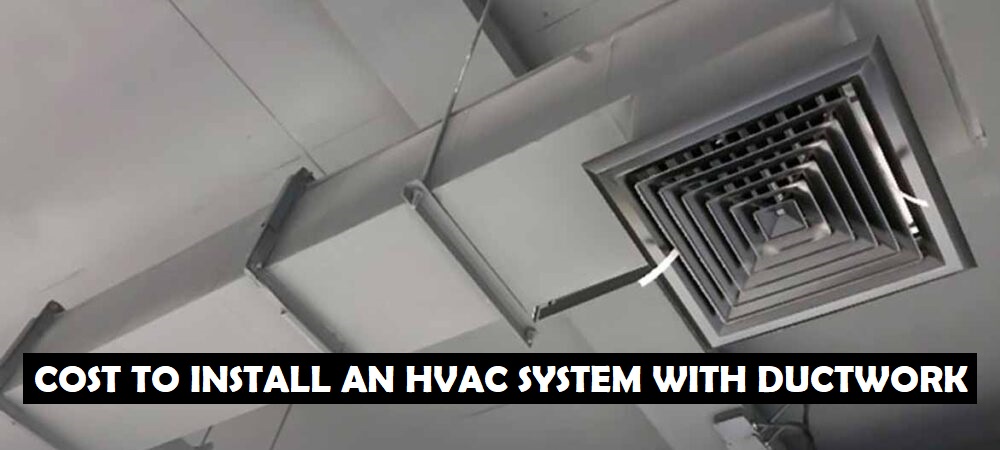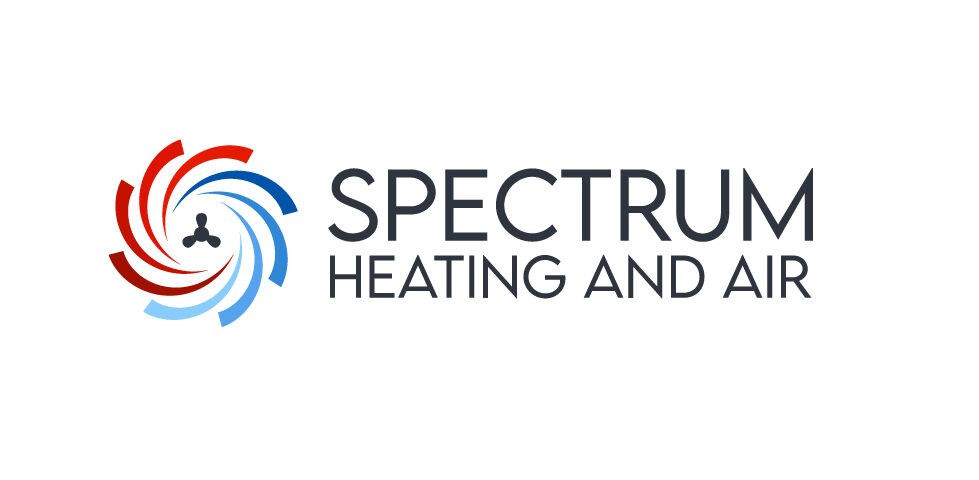If you’re considering installing a new HVAC system in your home or office, it’s essential to understand the costs involved, particularly when it comes to ductwork installation. HVAC (Heating, Ventilation, and Air Conditioning) systems are crucial for maintaining a comfortable indoor environment, and ductwork plays a significant role in distributing conditioned air throughout the building. In this article, we’ll explore the factors influencing the cost of installing an HVAC system with ductwork and provide valuable insights to help you make an informed decision.

The Importance of Ductwork in HVAC Systems
Ductwork is a series of pipes or channels that distribute conditioned air throughout a building. Properly designed and installed ductwork ensures efficient airflow and even distribution of heated or cooled air, making it a critical component of any HVAC system. Without well-functioning ductwork, the system’s overall efficiency and performance can be compromised.
Factors Affecting the Cost of HVAC System Installation with Ductwork
1. System Size and Capacity
The size and capacity of the HVAC system directly impact the installation cost. More significant buildings or spaces require more powerful and complex systems, which can be more expensive to purchase and install.
2. Ductwork Material and Design
The material used for ductwork and its design plays a significant role in cost variation. Ductwork can be made of sheet metal, fiberglass, or flexible materials. The design complexity, length, and number of bends in the ducts also affect the overall cost.
3. Energy Efficiency Ratings
Energy-efficient HVAC systems may have a higher upfront cost but can lead to substantial long-term savings on energy bills. Higher energy efficiency ratings often correspond to increased initial costs.
4. Geographic Location and Climate
The geographic location and local climate influence the HVAC system’s requirements. For instance, areas with extreme temperatures may necessitate more robust systems, impacting the overall cost.
5. Additional Features and Upgrades
Advanced features such as smart thermostats, zoning systems, and air purification technology can add to the overall installation cost. However, these features can enhance comfort and energy efficiency.
Average Cost Breakdown for HVAC System Installation with Ductwork
1. Cost of HVAC Unit
On average, the cost of an HVAC unit can range from $3,000 to $8,000, depending on the type, brand, and capacity. High-end units with advanced features may cost even more.
2. Cost of Ductwork Materials
The cost of ductwork materials varies based on the type of material used. Sheet metal ducts are generally more expensive than flexible ducts. The cost can range from $1,500 to $5,000 or more, depending on the complexity of the design and the size of the building.
3. Labor Costs for Installation
Professional HVAC installation typically accounts for a significant portion of the overall cost. Labor costs can vary depending on the complexity of the installation and the location, but they generally range from $3,000 to $7,000.
4. Additional Costs and Fees
There may be additional costs such as permits, inspections, and disposal fees, which can add a few hundred to a few thousand dollars to the total installation cost.
DIY vs. Professional HVAC Installation
Pros and Cons of DIY Installation
DIY HVAC installation may seem appealing as a cost-saving measure, but it comes with several challenges and risks. HVAC systems are complex, and improper installation can lead to performance issues, reduced efficiency, and even safety hazards.
Advantages of Professional Installation
Hiring a professional HVAC technician ensures that the system is installed correctly and operates at peak performance. Professional installation also usually comes with warranties, giving you peace of mind in case of any issues.
Tips for Cost Savings on HVAC System Installation
1. Research and Compare Quotes
Obtain multiple quotes from reputable HVAC companies to compare prices and services offered. Be cautious of overly low prices, as they may indicate subpar workmanship.
2. Consider Energy Efficiency
Investing in an energy-efficient HVAC system might cost more initially, but it can lead to substantial long-term savings on energy bills.
3. Optimize Ductwork Design
Efficient ductwork design can improve airflow and reduce energy waste. Consult with HVAC professionals to optimize your ductwork layout.
4. Regular Maintenance and Inspection
Regular maintenance and inspections can extend the lifespan of your HVAC system, reducing the need for costly repairs and replacements.
Installing an HVAC system with ductwork is a significant investment that can enhance indoor comfort and energy efficiency. The total cost depends on various factors, including the system’s size, ductwork materials, location, and additional features. While DIY installation may be tempting for cost-cutting, professional installation is recommended to ensure proper system functioning and performance.




